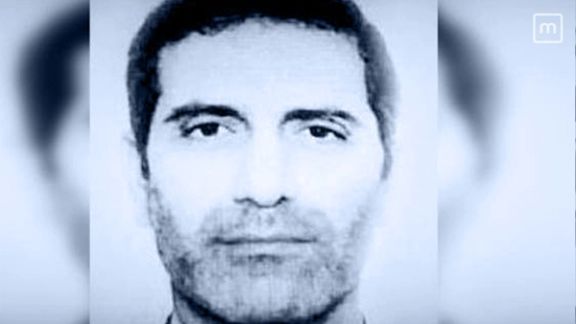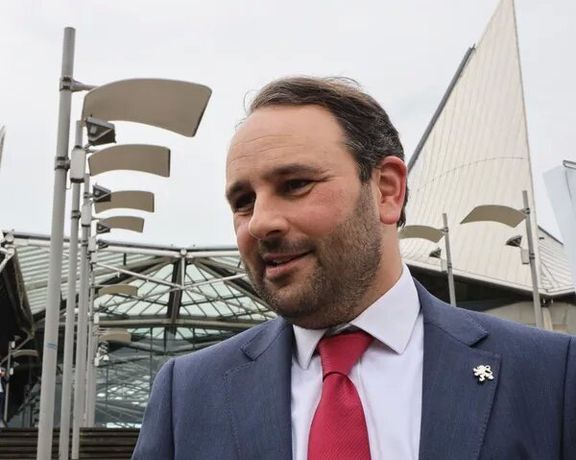US Can Ask Belgium To Extradite Iranian Terror Convict

Iran's government has presented a Prisoner Exchange Treaty with Belgium to the Parliament, which was already ratified earlier this month by Belgian lawmakers.

Iran's government has presented a Prisoner Exchange Treaty with Belgium to the Parliament, which was already ratified earlier this month by Belgian lawmakers.
He made the move on Monday as Tehran is pushing to finalize a deal on the expatriation of convicts between Iran and Belgium so that they would serve their sentences in their home countries. Critics fear that the treaty will pave the way for the release of Assadollah Assadi, a former Iranian diplomat serving a 20-year prison sentence in Belgium for “attempted murder and involvement in terrorism” for his role plotting to bomb a gathering of the exiled Albania-based opposition group Mujahedin-e Khalq Organization (MEK) near Paris in 2018.
Following several postponements and complaints by Belgian and US politicians, the contentious treaty was ratified by the Belgian parliament on July 20, however, a court in Brussels temporarily stopped Assadi’s extradition on July 22, pending “cross-examination before a judge” through an adversarial procedure – a hearing where both proponents and opponents of the prisoner-swap deal with Tehran -- including victims who had registered as civil parties to the trial – be present or represented by a lawyer.
Also on Monday, Belgian parliament member Michael Freilich told Iran International that the reports of a possible US request for Assadi’s extradition are not confirmed, but the possibility of a US request should not be underestimated.
He was referring to claims by Darya Safai, an Iranian-born member of Belgian parliament, who tweeted earlier in the day that Washington is planning to ask Belgium for expatriation of the former Iranian diplomat to the US in order to prevent his return home.
Freilich noted that the United States can make such a request because many senior American officials were also present at the gathering of the Iranian opposition group in France, which was supposed to be attacked by terrorists. He added that he is in correspondence with his contacts in the US Congress and the State Department regarding the issue.

He said that today is a sad day for all those who take the issue of fighting terrorism seriously, because this agreement will actually embolden the Iranian regime in its terrorist activities.
Belgium’s Justice Minister Vincent Van Quickenborne says that the assessment of the Belgian security service was that the treaty would decrease security threats for Belgians living and working in Iran.
Two Belgian newspapers reported on Monday that Washington is considering to request Assadi’s extradition, saying that the Department of Justice plans to try him in the US.
There are unconfirmed reports about the possibility of an exchange to secure the release of a Belgian man jailed in Iran since February under “espionage” charges.
Iran International broke the news that Tehran has detained a Belgian aid worker, identified as Olivier Vandecasteele, another example of the often-used Iranian tactic of imprisoning foreigners as hostages to exchange them with certain Iranians jailed in Western countries. Iran arrested the 41-year-old aid worker just when it was negotiating the treaty in question, which shows its lack of good will.
In the past years, 49 European citizens have been arrested in Iran. Eighteen of them are still in prison. Two of them have been killed, one has been executed and one died due to lack of medical access, Van Quickenborne claimed earlier in July.
Iran’s chief justice Gholam-Hossein Mohseni-Ejei also reiterated calls on Monday to release Assadi as well as former Iranian jailor Hamid Nouri, who was sentenced to life in prison on July 14 for his role in a purge of political prisoners in Iran in 1988.
He was charged with “war crimes, crimes against humanity, torture, and participating in the continued crime of refusing to return the bodies of executed prisoners to their families.” He has denied any wrongdoing and said plaintiffs' allegations were a "completely imaginary story".
Sweden arrested Nouri, now 61, upon his arrival in Sweden in 2019 and in 2021put him on trial over the mass execution and torture of prisoners in July and August 1988. Most victims were linked to the MEK but there were also some with links to leftist and secular groups.
There are allegations that Iran seeks to exchange Nouri with Swedish-Iranian scientist and academic Ahmad-Reza Djalali arrested on vague charges of espionage and collaboration with Israel in 2016 and sentenced to death in 2017.